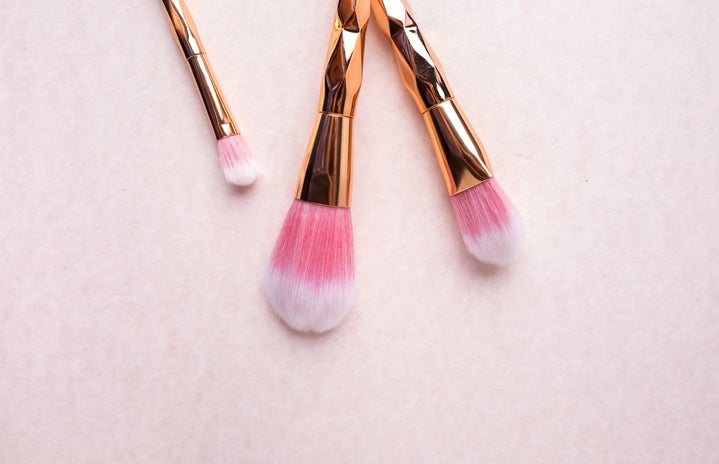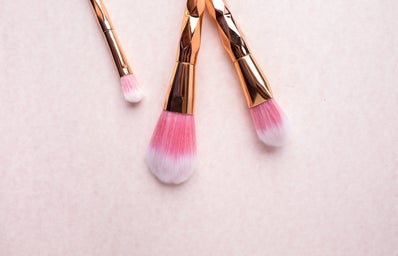Last November, singer Adele filed a trademark for her own cosmetic brand called “The Shelbourne Collective.” The beauty brand will reportedly include products like eyeliner, lipsticks, eyeshadows, and perfume. This should not be a shock to fans of the musician or makeup consumers because there has been a clear trend of musicians venturing out into the beauty space for a decade, especially in recent years. Singers like Ariana Grande, Selena Gomez, Rihanna, Lady Gaga, Jennifer Lopez, Halsey, and Kesha have all created beauty brands that they market to their already established fanbase. Even male artists like Harry Styles, who is known and praised for showing off different nail designs at his shows, developed a nail polish brand in 2021, called Pleasing. And let’s not even try to list all the names of musicians that have come out with fragrances. Certain artists may have started creating beauty brands because they were known for their makeup and fans would support it because it made sense for the artist and their career. However, the common venture may now seem too predictable for it to be genuine. So, what is it about musicians choosing to become creators of a beauty brand?
Cheryl Wischhover, a freelance beauty reporter, talked to Marketplace about why so many celebrities have makeup brands and why they are successful. Wischhover infers that celebrities think it’s more authentic to have their own product instead of being the face of someone else’s brand. The potential to make more money also follows that same line of thinking. Wischhover says there are fewer barriers than ever to launch a beauty brand. She continues: “celebrities…if they are big enough and have a big enough social media platform, they don’t have to do traditional advertising, which saves a huge amount of money.” Wischhover explains that the way a lot of celebrities go about making a beauty brand is by utilizing beauty incubators that provide manufacturers, find packaging, and provide executive teams. They take on the work of finding ways to execute the celebrity’s vision. Wischhover acknowledges that the consumer support of celebrity beauty brands is wavering. Wischhover points out “I think the situation where celebrities are feeling like it’s more authentic to have their own brand is now feeling [to consumers] like, “Oh, OK another brand,” you know.”
Despite shifting views, the year-to-year increase in purchases of celebrity beauty brands has been significant. There was an almost 58% increase in sales of celebrity brands in 2023 compared to the year prior. Namely, Rihanna’s brand Fenty Beauty, and Selena Gomez’s Rare Beauty have seen an increase in popularity in the beauty industry. Fenty Beauty boosted Rihanna to billionaire status and was named the most successful beauty brand in the world and the most profitable celebrity beauty brand. But how do celebrity brands pass over brands like Morphe and Glossier in popularity?
A lot is about the marketing and how many people it reaches, something that musicians easily have access to through their established music career and fans. Rihanna made a perfect marketing ploy when she put on the Fenty Invisimatte Instant Setting and Blotting Powder during her Super Bowl LVII performance. This three-second cameo of the product reportedly increased Fenty’s brand value by $5 million. Many claim that this is the exact reason artists choose the beauty brand course. Instead of letting other beauty brands use their face and name for marketing purposes, they can just make their own brand while marketing off their name and likeness they already have through their music career. However, authenticity is key to reaching an audience because many people can point out a cash grab right away, especially if it doesn’t go with the “brand” they have already made of themselves.
After watching a YouTube video titled “Celebrities need to stop creating beauty brands!”, multiple Reddit users chimed in to give their take on the supposed overdone venture. One user stated, “I feel like some celebrities don’t care about the ingredients or quality and just throw their name onto products as a cash grab and that leaves a bad taste and mistrust of other celebrities coming out with makeup lines.” Other users praise the excitement they see from Selena Gomez about her beauty brand and how involved she is in it. For example, Gomez does makeup videos of her using the products and one user said, “She is always genuinely excited about them, and she also says a lot of great info about them too.” Since Gomez doesn’t claim to be a professional in makeup, viewers find it endearing, writing “You can also tell that she’s no makeup artist…which I love because that just tells me that the products are usable and accessible to the average person!” Another user said, “She seems to really love the products she creates, and it doesn’t feel like a makeup line that has just ‘slapped’ her name on it for the promotion…” All these actions may make Gomez seem genuine which I think would also increase sales of her product.
Artists are also making their products more affordable; making consumers turn away from more high-end, expensive brands to their products. Halsey’s secondary makeup and more affordable line, af94, is a good example of this. Halsey created af94 to be sold exclusively on the af94 website and at Walmart. The af94 line is marketed as more affordable than her About Face line, with products priced at $10 and under. This allows her to cater to a much larger consumer audience than just her fans, as Walmart customers may see her makeup as an affordable option to try.
Celebrities, specifically musicians, are increasingly creating their own makeup brands and some of those brands reach million-dollar success. With an already established fanbase and a developed career that they can use for marketing, success for their developed brand is easier to find. If celebrities show an authentic interest in what they’re creating and create quality, affordable products, it will make them more appealing for the fans. This also contributes to a wider consumer base while limiting the chances their line will be seen as a cash grab. I think that beauty brands created by celebrities can seem overdone especially if the brand looks like a repeat of another. If the venture seems random, I personally wouldn’t look further into purchasing unless the product goes viral on social media or has excellent reviews. I would also think opinions on the musician would factor into people buying their products. So, the popularity of the musician may affect the success of the brand. However, seeing as creating a beauty brand can be a passion project or a good way to receive profit, no wonder many musicians seem to hop on the bandwagon.


